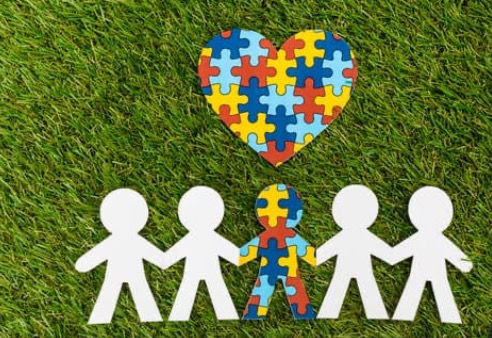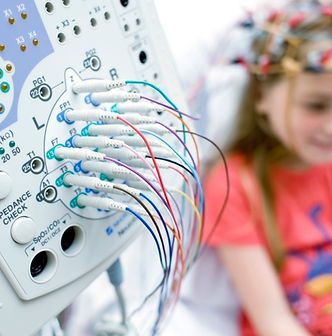
What Advice Would You Give to Parents Who Have Just Received an Autism Diagnosis for Their Child? Insights from a Brain Treatment Clinic
- Nov 14, 2025
- 5 min read
Updated: Nov 15, 2025
Receiving an autism diagnosis for your child can be an overwhelming and emotional experience for any parent. It often brings a mix of feelings, from concern about the future to uncertainty about what steps to take next. However, with the right information, resources, and support, parents can navigate this journey and provide their child with the best opportunities for growth and development.
At our Brain Treatment Center, we specialize in treating children with autism using Transcranial Magnetic Stimulation (TMS) therapy, a non-invasive treatment that has shown promise in improving brain function, communication, and social skills. In this blog post, we’ll share valuable advice for parents who have just received an autism diagnosis, including the importance of early intervention, seeking a comprehensive treatment plan, and the potential role of TMS therapy in supporting your child’s development.
1. Take a Deep Breath and Give Yourself Time to Process the News
It’s normal for parents to experience a range of emotions after an autism diagnosis—shock, confusion, fear, even relief. It’s important to remember that you are not alone on this journey. Autism is a spectrum disorder, and every child with autism is unique. While the diagnosis may bring challenges, it also opens up the opportunity to access treatments and therapies that can help your child thrive.
Allow yourself time to process the information and talk to other parents or support groups who have walked a similar path. Connecting with others who understand can help alleviate some of the anxiety and provide practical advice on what to do next.
2. Focus on Early Intervention: The Earlier, the Better
One of the most important pieces of advice for parents of newly diagnosed children is to seek early intervention as soon as possible. Research shows that the earlier children with autism begin therapy and support, the better their long-term outcomes in areas like communication, social skills, and overall functioning.
Why Early Intervention Matters:
Brain plasticity: The first few years of a child’s life are critical for brain development. Early intervention helps capitalize on the brain’s plasticity, allowing it to adapt and form new neural connections that improve behavior and functioning.
Improved long-term outcomes: Starting intervention early increases the likelihood of your child developing essential skills that can carry over into school, work, and social environments.
Better behavior regulation: Early behavioral therapies help children manage challenging behaviors and develop new coping strategies.
3. Explore Comprehensive Treatment Plans: Therapy and Medical Support
Autism is a complex condition, and there’s no one-size-fits-all approach to treatment. A comprehensive treatment plan is typically the most effective, which may include a combination of behavioral therapies, speech therapy, occupational therapy, and medical interventions.
Key Therapies to Consider:
Applied Behavior Analysis (ABA): ABA is a well-established therapy that helps children with autism develop important social and communication skills through structured learning and positive reinforcement.
Speech and Language Therapy: Many children with autism have speech delays or difficulties with communication. Speech therapy can help improve both verbal and non-verbal communication skills.
Occupational Therapy: Occupational therapy focuses on helping children develop the skills they need for daily living, including fine motor skills and sensory integration.
Social Skills Training: Social skills therapy can help children learn how to interact with others, understand social cues, and build meaningful relationships.
At our TMS brain clinic, we focus on Transcranial Magnetic Stimulation (TMS) therapy, which can be used as a complementary treatment to improve brain function in children with autism. TMS is a non-invasive procedure that uses magnetic pulses to stimulate brain regions involved in cognitive functions, social interaction, and emotional regulation.
TMS for Autism:
Improved brain connectivity: TMS can help stimulate areas of the brain that may be underactive in children with autism, improving cognitive functioning, communication skills, and social behavior.
Regulation of sensory processing: TMS has shown potential in helping to regulate the brain’s response to sensory stimuli, which can reduce sensory sensitivities—a common issue for children with autism.
Behavioral improvements: By improving brain activity, TMS therapy may reduce the frequency of repetitive behaviors and promote better emotional regulation.
4. Build a Support Network
Navigating an autism diagnosis can feel isolating, but building a support network is crucial for both you and your child. This network should include healthcare providers, therapists, support groups, and other parents who understand the challenges and triumphs of raising a child with autism.
Support Options to Explore:
Autism support groups: Joining local or online support groups can help you connect with other families who have similar experiences.
Therapists and specialists: Collaborate with professionals who specialize in autism care to build a team that can address your child’s specific needs.
Family support: Family members play a crucial role in supporting your child’s development. Educate your loved ones about autism to foster an environment of understanding and inclusivity.
5. Advocate for Your Child
As a parent, one of the most powerful things you can do is advocate for your child. This means being an active participant in your child’s treatment plan, ensuring that they receive the necessary services, and standing up for their needs at school, healthcare appointments, and other settings.
Tips for Advocacy:
Educate yourself: The more you understand about autism and available treatment options, the better equipped you’ll be to advocate for your child.
Attend IEP meetings: For children who are school-aged, attend Individualized Education Plan (IEP) meetings to ensure your child receives appropriate accommodations and services.
Know your rights: Familiarize yourself with local laws and resources that ensure children with autism have access to educational, medical, and social services.
6. Patience and Progress: Celebrate Every Step
The journey with autism is different for every family, and progress can sometimes be slow or uneven. It’s important to celebrate the small victories—whether it’s a new word spoken, a new social skill mastered, or a successful therapy session. Every step forward is a sign of progress.
Key Points to Remember:
Patience is key: Your child’s development may take time, and the road may have its ups and downs. Trust the process and stay committed to your child’s treatment plan.
Celebrate milestones: Even small achievements matter. Acknowledge your child’s progress, and let them know you are proud of them, no matter how small the step.
Focus on strengths: While it’s natural to focus on areas that need improvement, remember to highlight and nurture your child’s strengths and talents. Every child has unique abilities to celebrate.
7. Conclusion: A Path of Hope and Possibility
Receiving an autism diagnosis for your child can feel like a lot to absorb, but with early intervention, a comprehensive treatment plan, and the support of professionals and loved ones, there is much hope for your child’s future. Transcranial Magnetic Stimulation (TMS) therapy, as part of an integrated treatment plan, can provide valuable support in helping your child overcome challenges, improve brain function, and thrive socially and emotionally.
At our TMS brain clinic, we’re committed to helping families navigate the autism journey with personalized care and innovative treatments. If you’re interested in learning more about how TMS therapy can help your child, we’re here to answer your questions and guide you every step of the way.
If you’ve recently received an autism diagnosis for your child, or if you’re considering TMS therapy as part of their treatment plan, we’d love to hear from you. Contact us today to schedule a consultation and start exploring the options available to support your child’s growth and development.
📍 Visit www.reignbowtreatmentcenter.com
📧 Email: info@reignbowtreatmentcenter.com
📞 Call: 630-448-2721






Comments